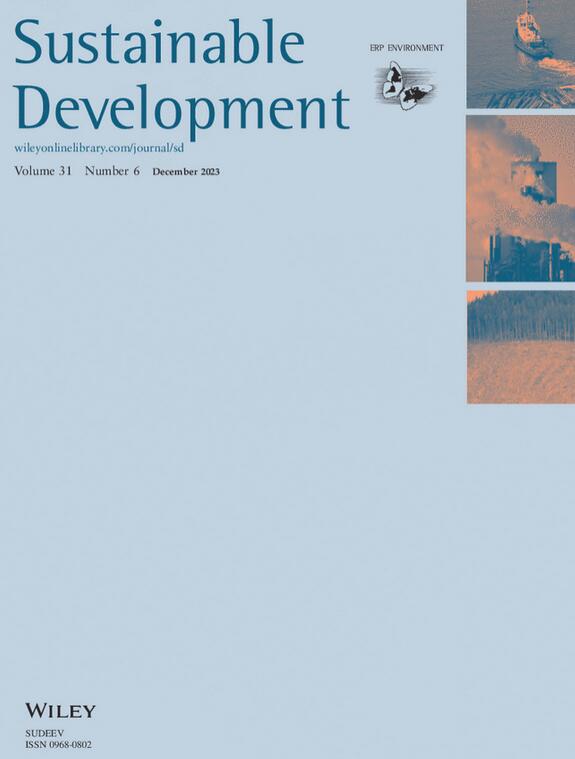刚果民主共和国的医疗保险覆盖率、贫困和金融包容性
IF 8.2
1区 环境科学与生态学
Q1 DEVELOPMENT STUDIES
引用次数: 0
摘要
本研究估算了刚果民主共和国(DRC)的医疗保险覆盖率及相关社会经济因素。利用 2017/2018 年刚果民主共和国多指标类集调查(MICS)的全国代表性家庭调查,我们采用加权逻辑回归模型来确定医疗保险覆盖率低的地区和亚群。研究结果显示,低保险覆盖率低于5%,各省和社会经济地位之间存在显著差异。此外,有三个因素与医疗保险覆盖率低密切相关:教育、财富和以拥有银行账户为代表的金融包容性。因此,我们建议政府、私营部门和捐助方优先考虑针对覆盖率较低的省份和未受过正规教育的个人开展项目,以提高医疗保险覆盖率。本研究鼓励政府制定提高金融包容性的国家计划,这将对减贫和医疗保险覆盖率产生积极影响。我们还建议政府在短期内启动保费减免试点项目,并通过对弱势群体的补贴,在长期内确保大多数人口的正规就业,以促进个人保费的正常收取。总之,本研究通过确定解释医疗保险覆盖率的社会经济因素,为有关刚果民主共和国和撒哈拉以南非洲医疗保险的文献做出了贡献。本研究的结果对政府、私营部门和捐助者促进医疗保险覆盖率和实现全民医保具有重要的政策意义。本文章由计算机程序翻译,如有差异,请以英文原文为准。
Health insurance uptake, poverty and financial inclusion in the Democratic Republic of Congo
This study estimates the prevalence of health insurance coverage and associated socioeconomic factors in the Democratic Republic of Congo (DRC). Using the nationally representative household survey of the 2017/2018 DRC Multiple Indicator Cluster Survey (MICS), we applied weighted logistic regression models to identify regions and subgroups with low health insurance coverage. The study's findings revealed a low insurance coverage of less than 5%, with significant disparities across provinces and socioeconomic status. Additionally, three factors were strongly associated with the low health insurance coverage rates: education, wealth, and financial inclusion proxied by bank account ownership. Consequently, we recommend that the government, the private sector, and donors prioritize programs targeting provinces with less coverage and individuals without formal education to increase health insurance coverage. This study encourages the government to establish national programs to improve financial inclusion, which could positively impact poverty reduction and health insurance coverage. We also propose that the government initiates pilot projects for premium exemptions and through subsidies for vulnerable populations in the short term, and ensure formal employment for the majority of the population in the long term to facilitate the proper collection of premiums for individuals. Overall, this study contributes to the literature on health insurance in the DRC and sub‐Saharan Africa by identifying the socioeconomic factors that explain the prevalence of health insurance coverage. The findings of this study have important policy implications for the government, the private sector, and donors to promote health insurance coverage and achieve universal health coverage.
求助全文
通过发布文献求助,成功后即可免费获取论文全文。
去求助
来源期刊

Sustainable Development
Multiple-
CiteScore
17.30
自引率
11.20%
发文量
168
期刊介绍:
Sustainable Development is a publication that takes an interdisciplinary approach to explore and propose strategies for achieving sustainable development. Our aim is to discuss and address the challenges associated with sustainable development and the Sustainable Development Goals. All submissions are subjected to a thorough review process to ensure that our readers receive valuable and original content of the highest caliber.
 求助内容:
求助内容: 应助结果提醒方式:
应助结果提醒方式:


